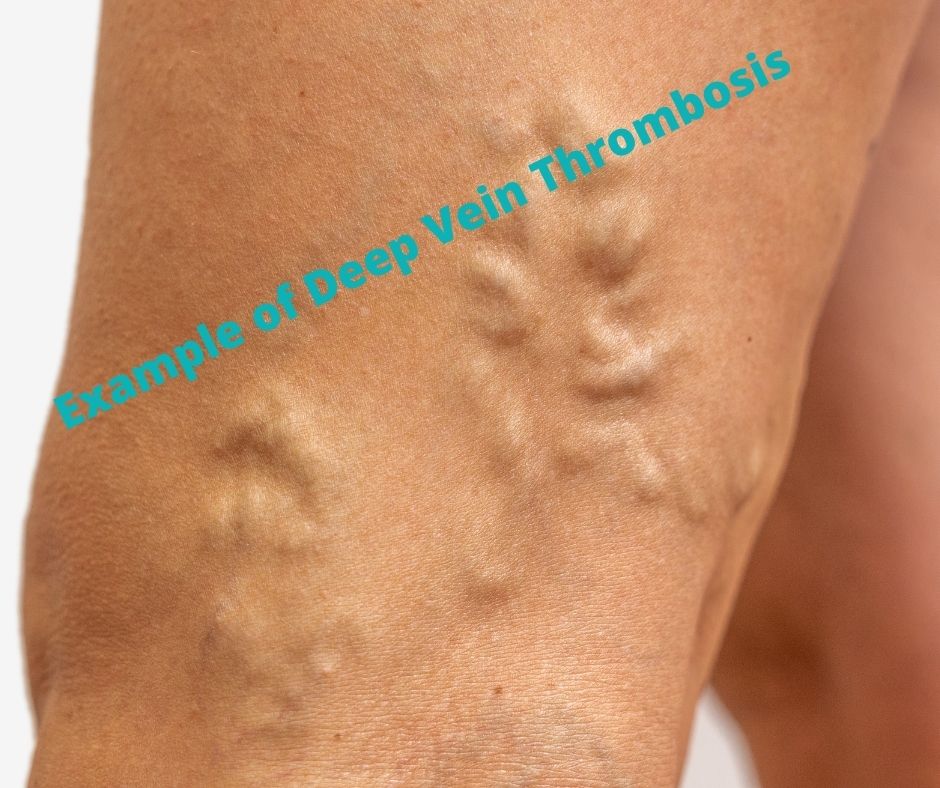The AstraZenica Vaccine and Blood Clot Controversy
Since blood clots were reported among small numbers of European recipients of the AstraZeneca Covid-19 vaccine, there has been some concern and controversy. Each country has responded differently- with the Australian government continuing with its rollout, while numerous European nations temporarily suspending its use. (Most but not all have now resumed use.) It is understandable if you have concerns… However, these reports in isolation don’t provide much information to go off. While my expertise is not in infectious diseases or vaccines, here I aim to help you sort through the confusion with some basic facts. It’s also important to keep in mind that both Covid and the information we have about the vaccines is evolving.
Key Points:
- There’s no evidence that the AstraZeneca vaccine increases risk of blood clots for the average person. In fact, the reported rate of clots is extraordinarily lower than those observed in the “normal” adult population (sans vaccine) and of people hospitalised with Covid-19.
- However, there is indication that there may be a very small subset of people who are at higher risk of having an autoimmune reaction to the vaccine, which then leads to a clot in the brain known as cerebral venous sinus thrombosis (CVST). At present, most of these appear to be women underr the age of 55.
- The scientists that have uncovered this propose that the risk could be succesfully managed by a) monitoring for symptoms and, b) if they arise, implementing treatment with blood thinning medication and an immunoglobulin.
- Continuing investigation will be key to uncovering any other relevant insights.
AstraZeneca and blood clots: cause-effect or coincidence?
We don’t actually have any proof that the vaccine increases risk of clots for the *average* person… (A small number of people may have an increased risk of an autoimmune response; see more below).
IF a link is proven, how serious would the problem be?

Quite rightly, investigations into the blood clots are ongoing. But many experts argue against having a knee-jerk reaction to the 37 cases of deep vein thrombosis/pulmonary embolism/brain haemorrhage that have been reported within the UK and EU. Out of the 17+ million vaccinations given, this is a very small number. (It equates to less than 0.00022%).
This is in no way to suggest that these cases don’t matter. They are a serious concern for each individual affected, as blood clots can lead to significant disability and death.
But it is worth keeping some perspective. For example, the 37 cases out of 17+ million is remarkably less than the number of blood clots that would be expected in “normal life”. While estimates vary, on average approximately 1 in every 1000 adults experience deep vein thrombosis or pulmonary embolism each year. Over the course of a lifetime, people have a 2-5% chance of getting deep vein thrombosis.
Furthermore, it would appear that the risk from the vaccine is substantially less than the risk of blood clots from COVID-19 itself. There have been many reports of COVID patients presenting with blood clots and associated symptoms such as ruptured plaques, heart attacks, and strokes. It has been stated that hundreds, if not many thousands, of deaths have been caused this way.
Of course, science requires more systematic data than such hearsay. To that end… While it’s too early to have globally representative data, several local studies have shown a high incidence of clots such as pulmonary embolism in Covid patients. For example, a multicentre study of 150 ICU patients found that 16.7% developed pulmonary embolism. More alarming, this was despite being on anticoagulant treatment designed to reduce this risk. This figure may even have been an underestimation as not all patients were thoroughly examined for the condition. Other studies suggest higher rates of clots- 30% of patients in Strasbourg University Hospital, and 35.6% in Valencia, Spain for example.
Even those who have Covid-19 but are NOT critically ill seem to have a higher risk of clots than people who have received the AstraZeneca vaccine. In a general (not ICU) ward in Madrid, 6.4% had proven pulmonary embolism.

We know a bit about how COVID causes clots. After starting off in the lung, the virus seems to enter broken blood vessels around alveoli. It then infects the vessels and damages the endothelium (i.e. lining of the vessels). Now we are not 100% over the precise mechanism, but a hypothesis is that Virus Spike proteins bind with ACE2 receptors, which are present in high amounts in the endothelial cells. The damage prompts local inflammation and an immune response… such as activation of coagulation and clotting cascades. Then… hello, plaque and clots.
Who is at higher risk of clots with the AstraZeneca vaccine?
As mentioned above, some people may have a rare autoimmune reaction to the vaccine that places them at a higher risk of clots. The Wall Street Journal, among other media outlets, reported that scientists in Norway and Germany each independently found it could trigger an autoimmune reaction that leads to a blood clot in the brain known as cerebral venous sinus thrombosis (CVST). They found most of the people experiencing this reaction were women under the age of 55.
An autoimmune reaction is essentially where the immune system mistakenly attacks its own healthy cells.
The hypothesis is that the vaccine triggers an antibody which then interacts with platelets, causing them to aggregate.

The German researchers have made a statement that if you show symptoms (such as headaches, dizziness or impaired vision) four days after vaccination, you can be quickly diagnosed with a blood test. They further suggest that then a straightforward treatment of blood thinning medication and an immunoglobulin (to target the antibody) could be implemented.
Note that these groups’ reports don’t appear to explain pulmonary embolism or other thromboses… Perhaps some light will be shed on this when the findings are published in peer-reviewed scientific journals. They are not yet, but the German team has signalled intent to submit to a highly reputed journal, the Lancet, as I write. Alternatively, hopefully further investigation will provide insight.
Why are women under 55 years of age most at risk?

This is hard to say at this point. However, 78% of all general autoimmune cases are seen among women- for unknown reasons. Although, unlike in this case, the general incidence tends to increase with age among women.
Of course, there are a number of other factors which also increase risk for autoimmune diseases in general, including genetics, obesity, having other autoimmune diseases, smoking and exposure to other toxic agents, early exposure to infections, and some medications eg: certain blood pressure medications, statins, and antibiotics. But we don’t have the data to indicate their impact in this case.
Whether there are other reasons/contributors to the clots is worth keeping an eye out for. No doubt the scientists will.
The Verdict
Overall, the AstraZeneca vaccine appears very safe despite reports of small numbers of blood clots seen among European recipients. Emerging investigations suggest that some people may experience a rare autoimmune reaction to the vaccine which increases the risk of a specific clot within the brain known as cerebral venous sinus thrombosis (CVST). However, the extradordinarily low rate at which this has been seen, combined with the weighty impact of the Covid virus itself, suggest it would be a gross overreaction to throw out plans of using the AstraZeneca vaccine. Of course continued monitoring and investigation should be performed to uncover any other key insights, and allowing the world to optimise or sensibly alter its vaccination strategies… but the risk we’ve seen so far is relatively minor; and, now we know about it, may be easily managed.
Do you have any specific concerns?
References
ABC News. (March 19, 2021). AstraZeneca vaccine not linked to overall increased risk of blood clots, benefits outweigh risks, says Europe’s drug regulator. Retrieved from: https://www.abc.net.au/news/2021-03-19/astrazeneca-vaccine-not-linked-to-increase-risk-blood-clots/13260884
Abd-Alhameed, R. et al. (2021). The Novel Coronavirus Causes Impairment of Blood Vessels and Respiratory System with Head-to-Toe Symptoms and Vaccine Development: An Overview. J. Phys.: Conf. Ser. 1793 012055.
Biswas, S., Thakur, V. Kaur, P, Khan, A., Kulshrestha, S. and Kumar, P. (2021). Blood clots in COVID-19 patients: Simplifying the curious mystery. Medical Hypotheses. 146:110371. doi: 10.1016/j.mehy.2020.110371
Cushman M. (2007). Epidemiology and risk factors for venous thrombosis. Seminars in hematology, 44(2):62–69. https://doi.org/10.1053/j.seminhematol.2007.02.004
Fairweather, D., Frisancho-Kiss, S., and Rose, N.R. (2008). Sex differences in autoimmune disease from a pathological perspective. The American journal of pathology. 173(3):600–609. https://doi.org/10.2353/ajpath.2008.071008
García-Ortegaa, A., Osculloa, G., Calvillo P. et al. (2021). Incidence, risk factors, and thrombotic load of pulmonary embolism in patients hospitalized for COVID-19 infection. Journal of Infection. 82,(2):261-269. doi: 10.1016/j.jinf.2021.01.003.
Global Autoimmune Institute. (June 10, 2019). About Autoimmune Disease: 7 Risk Factors for Autoimmune Disease. Retrieved from: https://www.autoimmuneinstitute.org/7-risk-factors-for-autoimmune-disease/
Mahase, E. (2021). Covid-19: WHO says rollout of AstraZeneca vaccine should continue, as Europe divides over safety.
BMJ. 372, n728. doi: https://doi.org/10.1136/bmj.n728
Mestre-Gómez, B., Lorente-Ramos, R.M., Rogado, J. et al. (2021). Incidence of pulmonary embolism in non-critically ill COVID-19 patients. Predicting factors for a challenging diagnosis. J Thromb Thrombolysis. 51, 40–46. https://doi.org/10.1007/s11239-020-02190-9
National Blood Clot Alliance. How Common is DVT? Retrieved from: https://www.stoptheclot.org/the_basics/how_common_dvt/ (Accessed March 22, 2020).
Pancevski, B. (March 19, 2021). Scientists Say They Found Cause of Rare Blood Clotting Linked to AstraZeneca Vaccine. The Wall Street Journal. Retrieved from:
Wise, J. (2021). Covid-19: European countries suspend use of Oxford-AstraZeneca vaccine after reports of blood clots. BMJ. 372, n699. Doi: https://doi.org/10.1136/bmj.n699
